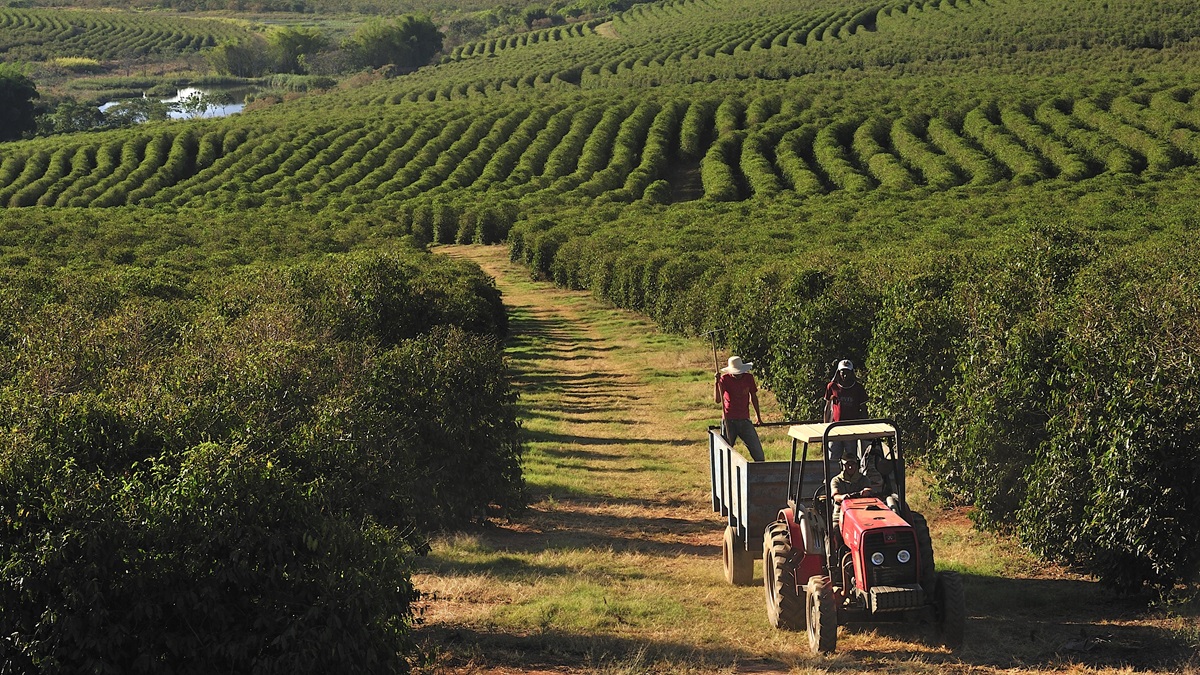A historic first, the conference dedicates a thematic day to highlighting the indispensable role of trade in conserving biodiversity for sustainable and inclusive development.
© Shutterstock/T photography | A coffee farm in Minas Gerais State, Brazil.
The inaugural “Trade Day” is set for 26 October as part of the United Nations-led 16th meeting of the Conference of the Parties to the Convention on Biological Diversity (COP 16) held in Cali, Colombia, under the theme of “Making peace with nature”.
The event is jointly hosted by UN Trade and Development (UNCTAD), the secretariats of the World Trade Organization, the Convention of Biological Diversity, the United Nations Environment Programme, along with other global partners.
Biological diversity, widely hailed as a strong, natural defense against climate change, sustains the livelihoods of some 4.3 billion people, more than half of the global population.
But in recent years, biodiversity has been declining at an alarming rate, with one million plant and animal species at risk of extinction.
To change course, international commerce can play a bigger role, Trade Day organizers say.
Because legal and sustainable trade is critical to protecting biodiversity and ecosystems and economically empowering local communities.
Plus, trade policies can better align with and support the objectives of the Kunming-Montreal Global Biodiversity Framework to halt nature loss, restore biodiversity and help countries achieve sustainable development leaving no one behind.
What to expect at Trade Day
The Trade Day aims to foster dialogue and advance solutions around trade and biodiversity conservation, bringing together actors across governments, businesses, academia, civil society and indigenous peoples and local communities.
The event will feature a high-level opening followed by thematic sessions on issues such as:
- How trade can advance the 23 global targets of the Kunming-Montreal Global Biodiversity Framework by 2030
- How trade can be more inclusive and sustainable
- Highlights on trade in terrestrial, marine and other aquatic ecosystems
- And trade in innovative and specialized markets
Participants can visit the information-sharing hub to discuss issues relevant to the connections between trade and biodiversity.
They can also showcase experience and best practices around trade-related policies and measures, standards statistics, nature-positive trade for sustainable agriculture, sustainable consumption and production, circular economy and more.
Deliberations from the day will also inform wider policy discussions at the upcoming UN climate change conference COP29 and its Climate Finance, Investment and Trade Day set for 14 November in Baku, Azerbaijan.
‘BioTrade’ for shared prosperity
Valued at $3.7 trillion, products with a biological origin represented 17% of global exports in 2021, according to the Trade and Biodiversity (TraBio) statistical tool which measures the international trade of biodiversity-based products.
The economic stakes are even higher for low-income economies, with the share often surpassing 40% of their exports during the past decade.
Spearheading the BioTrade Initiative since 1996, UN Trade and Development has supported more than 80 countries to promote trade in line with environmental, social and economic criteria.
The initiative provides a set of guidelines encompassing conservation, sustainable use, the fair and equitable sharing of benefits, and community empowerment across the entire value chain.
These guidelines are recognized in the monitoring framework for the Kunming-Montreal Global Biodiversity Framework under the complementary indicators to support the thematic or in-depth analysis of its Target 5, on ensuring sustainable, safe and legal harvesting and trade of wild species.
By aligning with the BioTrade Principles and Criteria, developing countries can diversify exports, conserve biodiversity and improve the livelihoods of local communities, thereby supporting the implementation of the framework.
The Trade Day and related activities benefit from the support of the Swiss State Secretariat for Economic Affairs under the global BioTrade programme.
The programme links trade, biodiversity and sustainable development as well as the UN Environment Programme through its partnership in the Trade, Development and the Environment Hub (TRADE Hub), which is funded by UK Research and Innovation, and the Global Challenges Research Fund.

